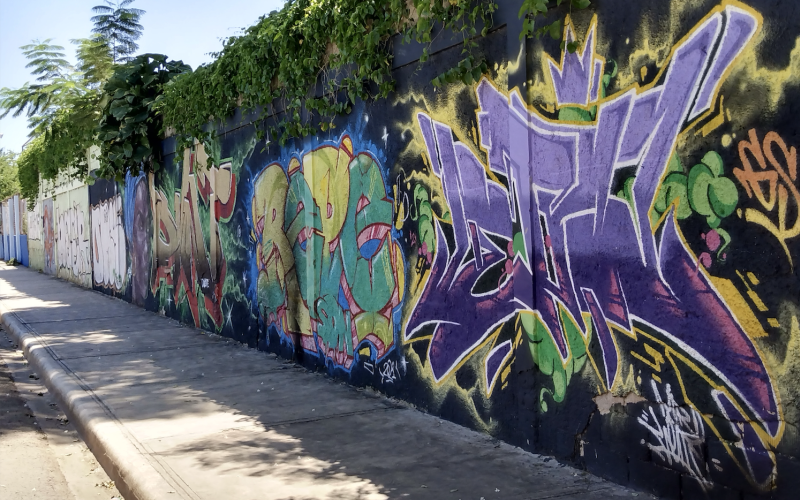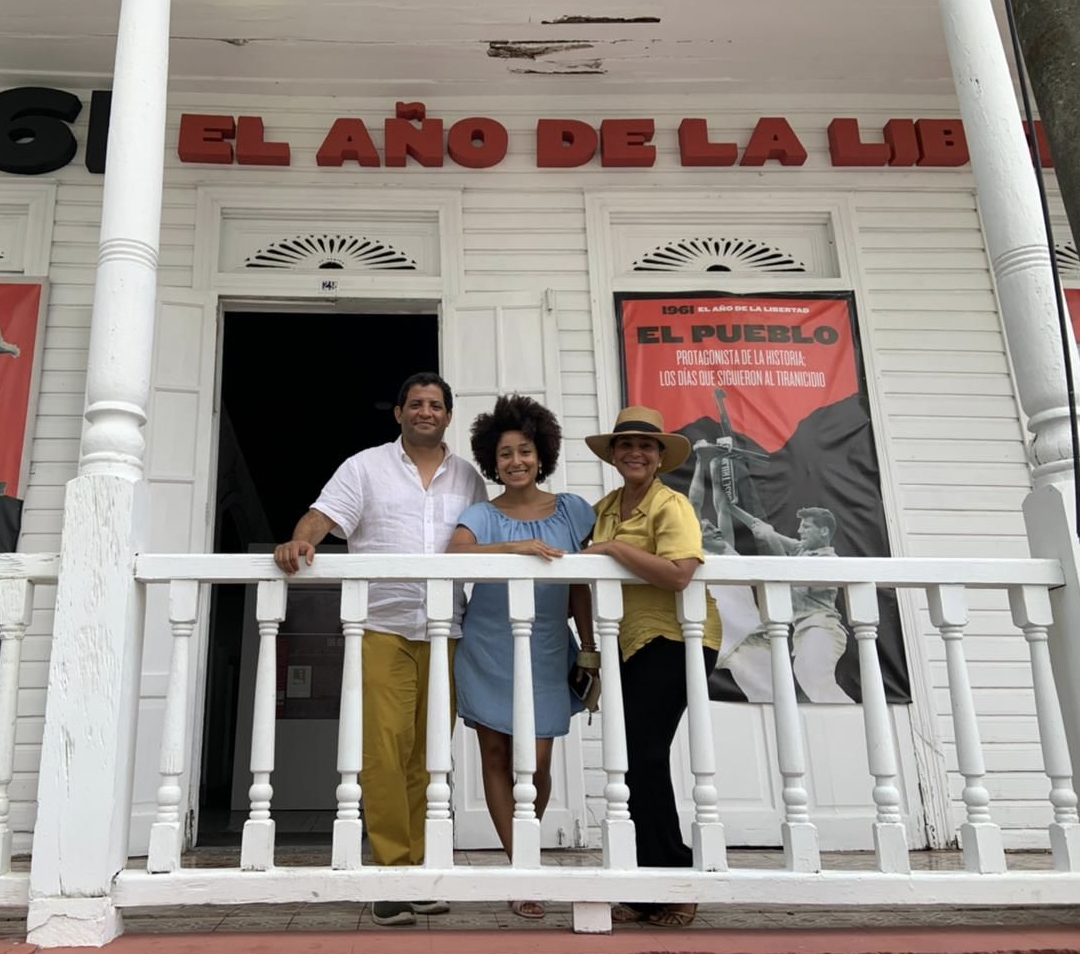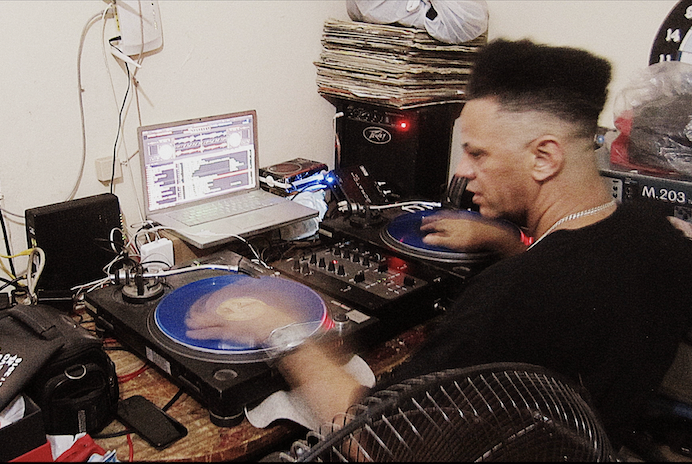$100,000 Grant Gives UAlbany’s Latin American, Caribbean and U.S. Latino Studies a Boost

By Bethany Bump
ALBANY, N.Y. (Nov. 10, 2022) — The work of four PhD students in the Department of Latin American, Caribbean, and US Latina/o Studies (LACS) at the University at Albany is being supported by a new federal grant program aimed at offsetting the impacts of the pandemic and uplifting the humanities.
The department received a $99,763 award through the National Endowment for the Humanities’ Sustaining the Humanities through the American Rescue Plan (SHARP) program, which launched last fall. The grant has enabled the department to fund dissertation-writing stipends for four advanced PhD candidates who will contribute to scholarship in the areas of Dominican Studies, Latinx cultural studies, migration studies, and Latin American history.
“For over a quarter of a century, the Department of Latin American, Caribbean, and US Latina/o Studies (LACS) at the University at Albany has graduated PhDs in the ethnic and area studies fields of Latin American studies, Latinx studies, and Caribbean studies,” said Johana Londoño, one of four professors in the department who applied for the grant. “We are one of the few departments in the nation to combine these interdisciplinary fields of study in one PhD program.”
UAlbany was one of 21 colleges, universities, nonprofits and community organizations selected by the Social Science Research Council in April to receive a grant through the program. Intended to address the pandemic’s wide-ranging impact on higher education and the humanities sector, the program provides funding to organizations and academic departments to support and bolster staffing, programming and operations.
Preference was given to projects that emphasized issues of diversity, equity and inclusion, as well as applications from minority-serving institutions.
Below, three of the candidates preview the research they are currently undertaking as a part of this award.
Narcisa Nuñez
Narcisa Nuñez is using her stipend to conduct research into the memory of dictatorship in the Dominican Republic under Rafael Trujillo from 1930 to 1961, and the role that artists within the Dominican diaspora play in processing those memories and resisting those legacies.
Nuñez, who was born in the Dominican and raised in Washington Heights, a Manhattan neighborhood that saw a wave of Dominican migration following the Trujillo years, was inspired to pursue her research for personal and academic reasons.
“Our families lived through these extreme day-to-day experiences to the point where, in the Dominican Republic, if you said something about the dictator, he had a secret service police that could just disappear you and kill you,” she said.

Nuñez had been interested in Southern Cone dictatorships in places like Argentina, Uruguay and Chile, where “Truth Commissions” and memory projects have provided some sense of justice and reconciliation to the people who lived through them. But similar efforts in the Dominican Republic have been missing, she said, and scholarship on the subject of post-dictatorship memory on the island and across the diaspora has been sparse in comparison.
Her work will dissect cultural productions by Dominican artists in the diaspora, including visual art, literature and performance art, and the way these can serve as vehicles for the process of memory-making.
Nunez was also personally inspired to pursue her research, as her grandparents grew up on the island during the Trujillo years and her grandfather served in the military.
“He never spoke about it,” she said. “I had had a really close relationship with my grandfather, but it was the one thing he didn’t talk about. And so that silence is also something I’m interested in in my research — those intergenerational silences and how the current generations make sense of that.”
Benoît Vallée
Benoît Vallée is researching the overlooked Dominican contributions to hip-hop and its origins in New York City, as well as the ways hip-hop culture developed in the Dominican Republic following New York Dominicans return trips to the island.
Born and raised in France, Vallée came of age at a time when hip-hop culture — from artists out of New York, in particular — was booming worldwide. He began to pursue his own musical passions in his free time, learning to drum, spin records and make beats.
His curiosity about the origins of hip-hop culture brought him to New York in 2013, where he enrolled in a master’s program in the LACS Department at UAlbany. Though hip-hop is often characterized as having been pioneered and developed by African-Americans, Puerto Ricans and Jamaicans, Vallée said Dominicans played a larger role than they are credited for.
“When I started studying this back in 2013-14, there was nothing on Dominicans,” he said. “It was a bit strange and curious, because since the 1960s Dominicans have settled in New York City in large numbers, precisely where hip-hop culture erupted, Uptown and the Bronx, and constituted a large diasporic group.”

Vallée suspects one reason Dominicans haven’t been as visible in literature about hip-hop’s origins is because they felt a pressure to assimilate into other minority groups in order to gain acceptance.
“When Dominicans get to New York, they get to a place where Puerto Ricans, African-Americans and other Anglo-Caribbean populations, such as Jamaicans, are known in terms of ethnicity,” he said. “Several Dominicans I interviewed tell me that depending on their skin complexion, they would pass as African-American or Puerto Ricans in order to be included and assimilated into the hip-hop community.”
Vallée’s research will also explore the concept of “scratching” — a technique used by DJs that involves constantly moving vinyls back and forth in order to continuously deconstruct and reconstruct sounds – in order to apply it to the ethno-racial, class and gender representations that Dominicans in hip-hop have had to navigate. A Dominican artist he is particularly fascinated by is DJ Raymond, who was allegedly the first DJ to scratch using a matchstick on cassette tapes.
“The scratching concept is so central to my dissertation because it says a lot about Dominicans dealing with all sorts of pressure. For example having limited access to music equipment, and trying to find a way to circumvent those limitations with whatever they have in their hands,” he said. “Getting creative to circumvent limitations and make things happen is so remarkable and very Dominican.”
Eric Macias
Inspired by his own background as an undocumented youth and time spent working with marginalized young people in the suburbs of Washington, D.C., Eric Macias is conducting research into the factors that cause youth without permanent legal status to drop out of school and the ripple effects that has going forward.
“There's this narrative that school is this safe space for young people or that education is your way out,” he said. “But often, that is not the reality for many undocumented youth.”

Born in Colombia, Macias moved to the D.C. area at the age of 12. He received his bachelor’s degree from LeMoyne College and a master’s from UAlbany’s LACS Department in 2010. From there, he returned to D.C. to work for an organization that provided prevention, education and workforce opportunities for young people who had dropped out of school.
“Working with those young people is what triggered me to come back to UAlbany and do this research,” he said. “I started seeing a lot more undocumented youth that had a really hard time navigating life.”
Macias has been following a group of 10 undocumented individuals under the age of 24 who came to the U.S. from El Salvador, Honduras and Guatemela and dropped out of school. Through interviews and field observations, he has gathered their life histories and watched them go about their lives to get a sense of how they navigate issues of legality and belonging.
Many of the individuals described school as a hostile environment where they were subject to racial discrimination and bullying by peers, he said, as well as harassment by school resource officers who threatened misbehavior with the prospect of jail. Some also felt torn between school and work, as they often had to work to afford migration-related costs or send money to family back home. Others described turning to gang-associated peers due to lack of financial or emotional support from family, he said.
Dropping out of school brought new challenges, Macias said.
“There is a stigma with dropout,” Macias said. “It’s often connected with deviance and criminality. And so while they wouldn’t go about their days worrying about being undocumented, they worried that the label of dropout would eventually criminalize them and make them potentially deportable.”
Macias said he hopes his research has policy and practice implications. The individuals he’s followed live in a “very progressive and inclusive” D.C. suburb that many consider a sanctuary space for marginalized groups, he said. But because so many social support programs are provided through the school system, students risk losing access to those services when they drop out.
“These are the bottom-of-the-barrel people that have been forgotten, people that have been underserved,” he said. “So even though there are all these potential systemic opportunities, they fall through the cracks.”




